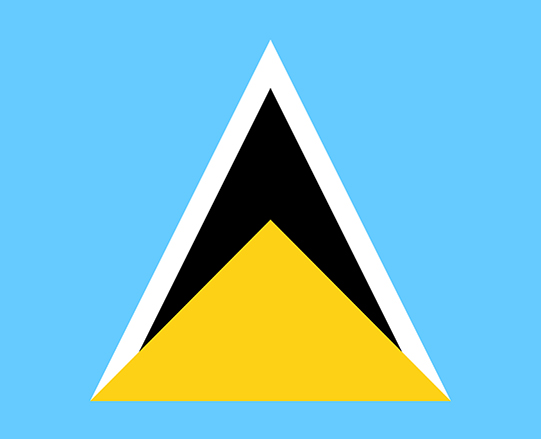The Human Dignity Trust applauds today’s decision by the High Court of Dominica, finding that laws criminalising consensual, same-sex sexual activity are unconstitutional and void.
The judgment strikes down discriminatory laws originally inherited from the British during colonial times, which were retained following independence. The laws were further enhanced through legislation introduced in 1998, with punishments of up to 10 years’ imprisonment. Specifically, the ruling found Sections 14 (‘gross indecency’) and 16 (‘buggery’) of the Sexual Offences Act 1998 unconstitutional because they violate the rights to freedom of expression, liberty and personal privacy.
Today’s decision is the culmination of an almost five-year legal case, originally filed in 2019 by a gay man who was challenging provisions of the Sexual Offences Act on the basis that they violated his constitutional rights.
The claimant, whose identity was withheld, expressed that as an openly gay man these laws have caused him to ‘live with great condemnation and fear not only for himself but others who are a part of the LGBT community in Dominica.’ Of note, lawyers acting for the Government of Dominica conceded that the laws violated the above-mentioned rights and could not be considered reasonably justified in a free and democratic society.
This is a resounding victory for the LGBT community of Dominica, and marks a continuation of the positive change that has occurred for the region’s LGBT citizens in the past two years, following similar court wins in neighbouring countries. We wholeheartedly congratulate the team behind this win, especially the litigants and lawyers, who have persistently pursued justice in the five years leading up to this momentous day.
Dominica was one of only six remaining criminalising countries in the Western Hemisphere, after the courts of Antigua and Barbuda, Barbados and St Kitts and Nevis struck down similar laws in 2022 in a succession of pro-LGBT judgments that year. These human rights victories had followed earlier decriminalisation successes in Belize and in Trinidad and Tobago. Only the courts of Jamaica (2023) and St Vincent and the Grenadines (2024) have found against decriminalisation, in judgments that are under appeal.
‘There are now only five countries in the Americas where laws that have been in place since colonial times and that criminalise LGBT people continue to dwell on the statute books,’ Braun continued. ‘Today’s decision sends a clear message to those remaining five that they must now accelerate the pace of change and remove their stigmatising laws, or remain as outliers.’
Criminalisation of consensual same-sex intimacy creates an environment of shame, stigma and violence for LGBT people. It also hinders access to and uptake of HIV prevention, testing and treatment services. Decriminalisation means that vital public health work can continue within an environment that is more open and inclusive and that will lead to better health outcomes for all.
Today’s decision and the related 2022 court victories in the Caribbean come hot on the heels of a landmark 2021 decision from a top regional human rights tribunal, in Henry and Edwards v Jamaica, finding that laws criminalising LGBT people violate the American Convention on Human Rights.
Notes to editors
- Read the judgment from the High Court of Dominica.
- A case digest will shortly be available on HDT’s library of resources
- Visit the Human Dignity Trust’s interactive map to see which countries across the world continue to criminalise LGBT people.
- The Human Dignity Trust works with LGBT activists around the world to defend human rights in countries where private, consensual, same-sex sexual activity is criminalised. We provide free technical legal assistance to local organisations that are challenging laws that persecute people on the basis of their sexual orientation and/or gender identity.
For more information and to arrange interviews contact:
James Aldworth, Communications Manager, Human Dignity Trust
E: jamesaldworth@humandignitytrust.org / X: @HumanDignityT



